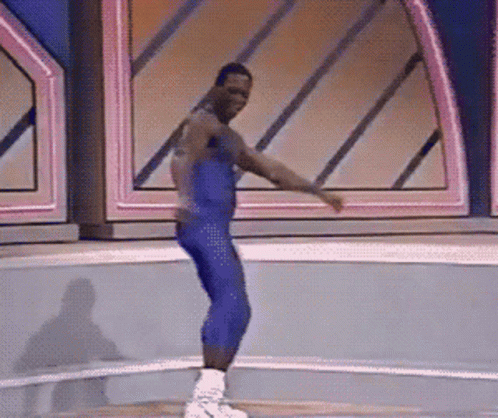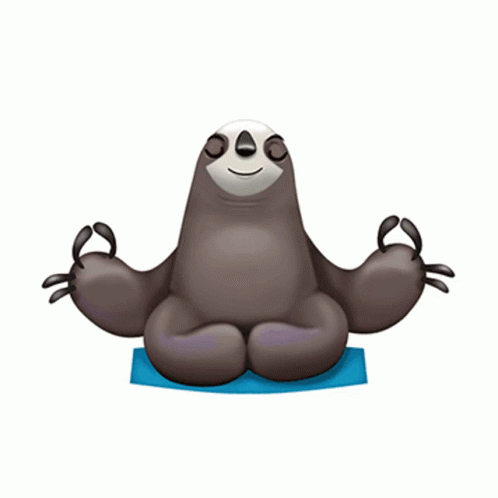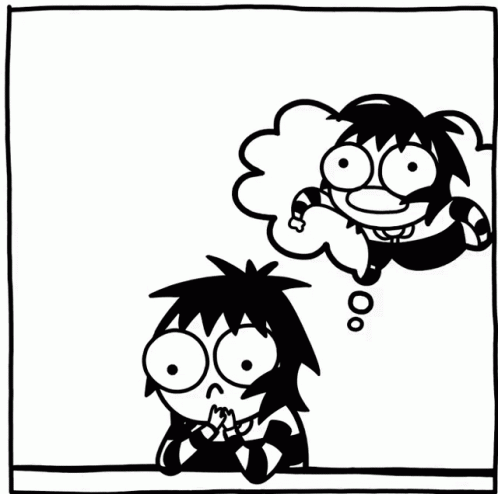The Work Break Dilemma
Our daily work and study o'clock are filled with one major, frown-awful dilemma. Stretched too thin between two far-away, yanking states, we wonder do we keep on marinating in work or do we take a brain break.
You do it too, don't you?
This dilemma seems to be given birth out of our best possible, god-honest intentions. "Today I'll give my brain some space to breathe."
Two calls, daily stresses, and a few unexpected notifications later, your brain - a dog's dinner at this point - justifies work marination. Music stops. I mean, how couldn't it? Unexpected disturbances got you way behind schedule! You need to get more work in.
This quick brain breaks ↔️ work more dilemma ironically ends up walloping both desired states - calm and focus. Instead of feeling happy winging through your duties, you end up fluttering desperately on the ground looking at your tasks as they step over your wounded fanny. One leg is in burnout another one on the gas pedal.
Office warriors and students alike, here's a super fun blog post to help you break this notorious cycle.
You Need Brain Breaks No Matter the Scenario!

Time and again, we underestimate the importance of brain breaks. Let us say this loud and clear.
Brain breaks are as key to your work, as work is to your work.
And really, that's only just the tip of the iceberg... The benefits of brain breaks are as vast as that arctic glacier, both above and below the surface level.
In a randomized controlled trial done throughout eight different countries, researchers wanted to test the effects of physically active brain breaks on students. The result of the study indicates that this quick break resulted in an improved attitude towards physical activity and brain breaks. They inspire kids after a high school day to shout: please, more of these fun brain break activities.
If performance and well-being are just what you’re after - not just boost in classroom ideas - physically active brain breaks may be just the ticket. Fifteen minutes of deliberate physical activity in younger students (elementary education) was found to boost cognition and well-being. One way researchers believe these frequent brain breaks spurred up cognition and go-happy mental activity is through improvements in mood and self-confidence. Most likely a sequel to reducing poor health and stress at the source.
Even more striking than the benefits of physical activity breaks, is the upshot of injecting mindfulness exercises into your daily short breaks. It is found to be especially helpful to reduce stress, anxiety, and depression. What's more, mindful brain breaks, if done right, could reduce pain and fatigue in people with chronic pain.
Said in plain English, brain breaks work and we're giving you the juice.
6 Calming Brain Break Activities To Bracket Your Focused Sprints
If you were looking for calming brain-break ideas, look no further.
We bring you a list of the best brain breaks that will uphold your energy levels, help you stay focused, and foster a relaxed state of mind you need to allow your brain and body to flourish.
All of these brain-break activities are carefully bundled to help students relish their projects; the workforce to rise to the occasion and stay healthy; and basically, everyone to electrify their genius with a golden radiance.
#1 Physical Activity Breaks

Whenever you feel like your brain just won't stop it's way past time to stop. That's where - and sooner than that - jolly and quick brain break (aka movement break) should come in!
Physical activity brain breaks - you know, the joyous whips of action - are absolutely essential for a calming brain. They're all pluses, no minuses - both in the office and classroom setting. And it doesn't even have to be difficult or boring to release excess energy and get the blood flow pump. In fact, the key is to do them in a fun way because your brain loves the frivolous spurts of body action.
You can do them without leaving your desk or wasting too much time! They are a fun way to vitalize your spirit with a good sort of extra energy. They also help release the anxious jitters that may have built up during long hours of mental activity and get the blood flowing. Not to mention decrease in blood pressure as your physically active hours stack up.
The best thing? Wakeout is in the business of making these fun brain breaks. The app is like a freeze dance - you move around during a break, and freeze for a work session. Plus, a workout action song makes each break just that much sweeter and it comes at no extra cost, of course.
Sedentarism pushed us to build a visual timer that helps you track your focused work. Moreover, an app guides you through the physical activity routine, plays fitting physical movement songs, and cues you to cherish healthy moments. If moving along fun song feels like too much too soon, starting with the blog will also provide handy guidance. Here's what we'd urge you to start with:
- 36 Desk Exercises to Stay Healthy
- 7 Breaks to Sneak Into a Busy Schedule
- 5 Stress-destroying Exercises
- Outside activity: walking, jogging, balloon volleyball...
- Or just simple 5 jumping jacks or 10 push-ups every once in a while...
#2 Yoga Break To Help You Wind Down
If you think yoga is just for people who want to twist their bodies into knots, think twice! Yoga can give your body a workout, and a right brain break, without too much exertion. It's an amazing way to get your mind in the zone so you can move from task to task with ease and confidence. After the days of practice, you're likely to notice your self-regulation actually exists. You'll be able to resist, in fact, you'll wish not to engage in instantly gratifying activities. Instead, you might catch yourself bolting through tasks while in tree pose.
If you're not naturally jumpy or full of energy, this meditative brain break activity can be just the ticket to get your motivation and productivity flowing. Moreover, it's a definition of calming brain break plus activation of body parts. So next time you need a mid-day brain break at your work or learning station try yoga poses instead! Your self-esteem and energy level will thank you for it.

#3 When Things Turn Dull Engage in Quick Games
We've all experienced it. It's simply a fact of life: parts of our work get repetitive, redundant, or just straight-up boring. Paying attention is as enjoyable as getting stuck in traffic listening to radio adverts.
Loud and clear, again. This boredom is killing your attention and hurting your focus long-term! (Podcast source)
Research done by Innovation York’s Knowledge Mobilization (KMb) Unit, among many others, showed that the tendency to feel bored disrupts our attention and makes us do errors. In fact - no matter the nature of the task - the sustained attention itself was found to become boring.
It also makes us listen to podcasts, shows, music, whatever - just to entertain that bored sponge of ours and give in to behavioral or sensory needs. Which again - you guessed it - is not a good option. So, to stop wandering off around the room you might want to play quick games and take frequent breaks! Oh, yes, almost - these do make great brain breaks for kids too if you're ever in need!

Rubik's cube, brain teasers, focus ball, chess, math problems, jigsaw puzzles, crosswords, and Neuronation-type of brain games. They are all great brain-break ideas that help train and increase focus and help you develop critical thinking skills. Yes, even grown-ups play a quick game from time to time!
An art session, a card game, drawing in full colour with a left hand, or a one colour double knitting practice can aid your brain in restarting. If you feel like staying on a laptop, try Lumosity, Cognifit, Sharpbrains, or BrainHQ. They won't just help you better bear the boredom but are sure to nourish your brain power overall.
Every 30-40 minutes, along with desk exercises, you could engage in your favorite brain break games. Forbes reports that these focused-attention practices onset different cognitive functions in younger kids and adults, help adults keep their reasoning sharp, and stimulate processing speed.
#4 Calming Deep Breath Makes a Mindful Break

We're keen on making productivity a social norm, aren't we? We're not saying it's good or bad, this is not the time or place - that's just the way it is. And it's understandable. Performance matters both for personal and career endeavors.
The good thing that surfaced from practicing higher productivity though, is that it made us realize the importance of deep breathing, mindfulness, and awareness. In the last ten years - more so than ever - mindfulness practices are emerging to save us (westerners) from ourselves. And we're here to help you save you from perpetual brain work with sensory brain breaks.
For one of your next mindfulness brain breaks, try to relax completely and engage in deep breathwork to practice mindfulness.
Get comfy in your chair or lie down on the floor. Do all you need so your body is completely relaxed. Now, breathe in through your nose letting your belly rise as it soaks in the air. You can place one hand on your belly and the other one on your chest. Feel your belly rising. The hand resting on the belly should move more so than the hand placed on your chest.
Take at least ten deep breaths and relax. Even better, try out the square breathing technique. Remember to engage in breathing exercises as a form of relaxing brain breaks every now and then. You can do this breathing exercise yourself or in case you're handling an entire class of energy bombs this does make a fine shared activity where students sit and relax for a brief, present moment.
#5 Idle Mind Is a Calm Mind
Creative people need time to just sit around and do nothing. - Austin Kleon
And we dare saying not just creative folks, but everyone with creative thinking endeavors.
There is this theory that when you let your mind wander away to unforeseen realms, it aids your mental and physical health. Unconstrained thinking, whether you're walking, sitting, or hanging around in a lotus position... There's a chance it may be good for you. Yes, zero agenda, a breath of fresh air perhaps, and nothing to rush or force. Just you and your curious, disordered thoughts dwelling over unfinished mental business.
And how, you may wonder, could this brain break be good for you? What about the notorious overthinking that got you in all sorts of various pits in the past?

Well, humans have an innate capacity to think things over. Unlike other animals, we spend 46.9% of our waking hours pondering something else that we're not momentarily doing. Tigers hunt, zebras run. Humans, well, we imagine being a tiger hunting down zebras while having a team meet-up. We're weird, ok? But that's not the point.
The point is: We should give ourselves deliberate time and space to ponder away. We crave it. If we don't, our free thoughts might take over when we least need them.
That's the reality of "an idle mind is the devil's workshop." Bad thoughts don't come to those that occasionally let their thoughts wander. They come to those who lack structure in allowing their thoughts to roam.
So, next time you need a thinking space - book a 30-minute brain break in your schedule, take a walk or just sit, and get away from everything (except your thoughts). No music to listen carefully to, no information, no audiobooks, no nothing. Just you and your mind. Once the clock rings a 30-minute mark, your brain break is over. Reclaim the focus. Back to being emersed in the moment!
After a while, you might just realize an idle mind is a calm one.
#6 Educational Foundation on Mindfulness Meditation

Speaking of brain breaks and being in the moment... Mindful breaks!
Just like you need a thinking pass, your mind will love being given some simplicity. And mindfulness meditation is the best way to practice being fully present, calm, and aware. That's why it made it to the brain breaks list.
If you choose to indulge in this brain break, you're in for a sea of astonishing benefits proved by science. Research shows it leads to stress reduction, anxiety relief, emotional maturing, better coping with transition times, improved attention, warmer attitude, improved sleep, etc.
To experience the true benefits of meditation brain breaks, finding the center of your attention is key. This does not have to be something spiritual or quantum - it could be focusing on your breath, blowing bubbles, or performing a body scan from head to toe and paying close attention to any movement or sensation in your body.
It is normal for thoughts to wander during meditation. Instead of trying to immediately return your attention to the center, try taking a pause. Don’t feel guilty about it - give yourself some time to pause and transition from whatever it was you were thinking about. Then, return back to your chosen point of focus with kind acceptance. Any thought is OK, don't judge yourself for it. Just accept it and slowly bring your attention back to the breath, sound, or body.
Starting with a few minutes a day is more than just one foot in (and it's doable). As you grow to like these brain breaks, raise the time bar slowly. We promise you, you'll find it's reducing stress notably and your brain will learn to be stable, calm, and at ease.
The busy schedule got you all messed up? Here are the 14 quick ways to rejuvenate yourself!

Improve your team's sedentary habits
Setup and manage your team in a few minutes, self onboarding.
Get started now









